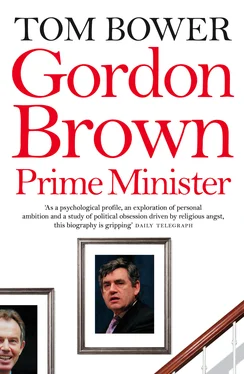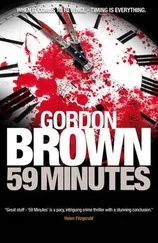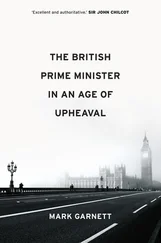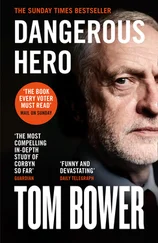But Brown did not self-destruct. He reasserted his self-control, the tension eased, and he began designing a strategy for his survival. Driven by his hatred for the Tories and his searing ambition to become party leader, he contrived a convincingly venomous denial of the past. ‘We have to fight to avoid going down with the government,’ was the common sentiment. His first decision was to reject an invitation to appear on that evening’s Newsnight. He knew he would have to answer the charge that if Labour had won the election they would have been hit by the same crisis, and would have reacted identically to the Tories. The party, Brown decided, had to avoid self-flagellation and pontificating about the ‘current mess’. Instead, he would offer soundbites damning the government.
As he faced the news cameras he propped a piece of paper in front of his eyes bearing the words, unseen by the viewers: ‘Huge chasm’. His identical soundbites, emphasising this ‘huge chasm’ between the government and Labour, blamed everything on the Tories, and suggested that Labour had never endorsed the disastrous policy. ‘We demanded interest cuts,’ he repeated endlessly, although that was not a solution to the crisis. ‘The government failed to listen to our warnings … The Tories are the party of devaluation … The Tories cannot be trusted on the economy.’ The government’s humiliation was transformed into a Labour success. ‘I say to Norman Lamont: spend your energies pursuing the useful job of creating jobs for others rather than the futile goal of clinging to your own.’ Of John Major he said: ‘The recession started when he became Treasury secretary, worsened when he became chancellor and intensified when he took over as prime minister. Every time he changed jobs, thousands lost theirs.’ Stubbornly, he repeated his rehearsed phrases and ignored supplementary questions. He may have turned the facts upside down, but the public was unconcerned. Their spleen was directed at the Tories. Labour’s support for the policy was forgotten. Brown’s calculated indifference to the truth did not impress the party cadres. The left, disgruntled by his modernisation agenda, was whispering against the now isolated shadow chancellor.
Two weeks later, Brown arrived at the 1992 party conference in Blackpool. The criticism had not relented. The opinion polls showed that Labour was still not trusted by voters on the economy. His fear had plunged him into a deep, black mood. He was convinced that Robin Cook and John Prescott were conspiring to expel him from the front bench, and that he was fighting for survival. Reconciling Brown with Cook, complained fellow shadow cabinet member Frank Dobson, the spokesman for employment, had become ‘a lost cause’. Brown’s grudges exploded in private but were concealed from the public. As he toured the corridors at the conference hall he repeatedly told delegates he encountered, ‘There is no way that Labour could have kept its credibility if I’d come out in favour of devaluation.’ Because he had resisted the devaluation chorus, he continued, Labour had been immunised from blame for the collapse of the pound. The Tories, he said, should be cast as the party of devaluation. Repeatedly he told his critics to blame the Tories for ‘ betraying Europe’, twisting the responsibility for the ERM crisis away from the real culprits, the Germans and the EU Commission who had refused to support Britain. His conference speech was an old-fashioned tirade: ‘The City of London is Britain’s biggest casino, and the winners are celebrating over £500 million won by cocky young men betting on a certainty.’ He demanded curbs on currency speculators (whom he had earlier predicted would be controlled by the ERM) and advocated ‘ managed exchange rates’ as ‘absolutely necessary’. The contradictions were glaring, but that was irrelevant. Despite his faltering popularity, he was again first in that year’s elections for the shadow cabinet, with 165 votes.
Brown returned to London determined not to waver. Preoccupied by a zealous conviction of his virtue, he became impenetrable and impregnable to the doubters. He was dubbed a political glacier, but he pursued his duty. ‘I must come up with some big ideas,’ he told friends. In 1906, 1945 and 1974, Labour had reinvented itself. In 1992 the party again required a huge intellectual effort if it was to win credibility. Those pessimists preaching that Labour’s support could not break through the 35 per cent barrier, or that the party had a declining base, were ignored. His tactics had provided breathing space and an inspiration for a new crusade. He immersed himself in rewriting Labour’s policies to make the party electable, in a style his supporters called ‘radical populist’. His latest political journey was calculated to convince electors that Labour was abandoning the economic policies on which it had fought the previous election.
Brown was resolved that Labour would never again pledge to raise taxes in an election campaign, but that was only the beginning. The image of Labour as the party of inflation, high spending and begging from the IMF had to be eradicated. No future Labour government, he decided, could finance failing industries or restore unlimited powers to the trade unions. He would pledge support for full employment, but refuse to support higher taxation or restore the earnings link to state pensions. He began speaking about the importance of developing Labour’s response to the new shibboleths: globalisation, the financial markets and the ‘knowledge economy’. Relying on competition in the market rather than imposing state controls, he slowly recognised, gave people greater opportunities; knowledge rather than capital had become the key to wealth, and he listened to those saying that the poor would be enriched by learning new skills rather than by the imposition of state control over wealth. The new gospel would present the party as a modernising agent for the economy, society and the constitution. Much of Thatcherism, Brown acknowledged, was irreversible.
His reward was more unpopularity. Senior colleagues including John Prescott, David Blunkett, Jack Straw, Robin Cook and Michael Meacher regarded his ‘radical populism’ as ‘nauseating’. Brown, they believed, was ‘ harbouring dangerously revisionist, pro-establishment ambitions for the party’. Although they did not share Bryan Gould’s violent characterisation of him as a more fanatical monetarist than the Tories, they objected to any abandonment of socialism. Brown rebutted their criticisms. In the fashion of an evangelist, he behaved like the leader possessed of the truth and commanding his flock to follow. But to assuage his critics, he began perfecting the art of addressing different audiences with different messages. To please the left, he promoted himself as a true socialist. ‘Labour,’ he wrote in Tribune , ‘rejects the notionthat a free-market approach to currency markets will bring lasting benefits to the British economy … Never again must speculators control the policy of government. Action must now be taken to strengthen European co-operation to diminish the power and role of speculators.’ Simultaneously, he was reinforcing loyalties among those friends who loathed the Tribunites. Supported by Blair and Mandelson, he confronted his critics. Robin Cook, the health spokesman, had predicted, ‘Labour will never govern again unless it adopts proportional representation.’ Cook was brushed aside by Brown with open scorn. Bryan Gould was damned as ‘dangerous and reckless’. John Prescott was derided for criticising the modernisers’ attempts to expunge the image of ‘ a party ofthe poor and the past’ and to broaden Labour’s appeal to the middle classes. Seemingly uninvolved in the steamy rows was John Smith. The party leader disliked any dilution of Labour’s old ideologies. Just ‘one more heave’, he believed, would expel the Tories. Brown, Blair and Mandelson sought another route.
Читать дальше












